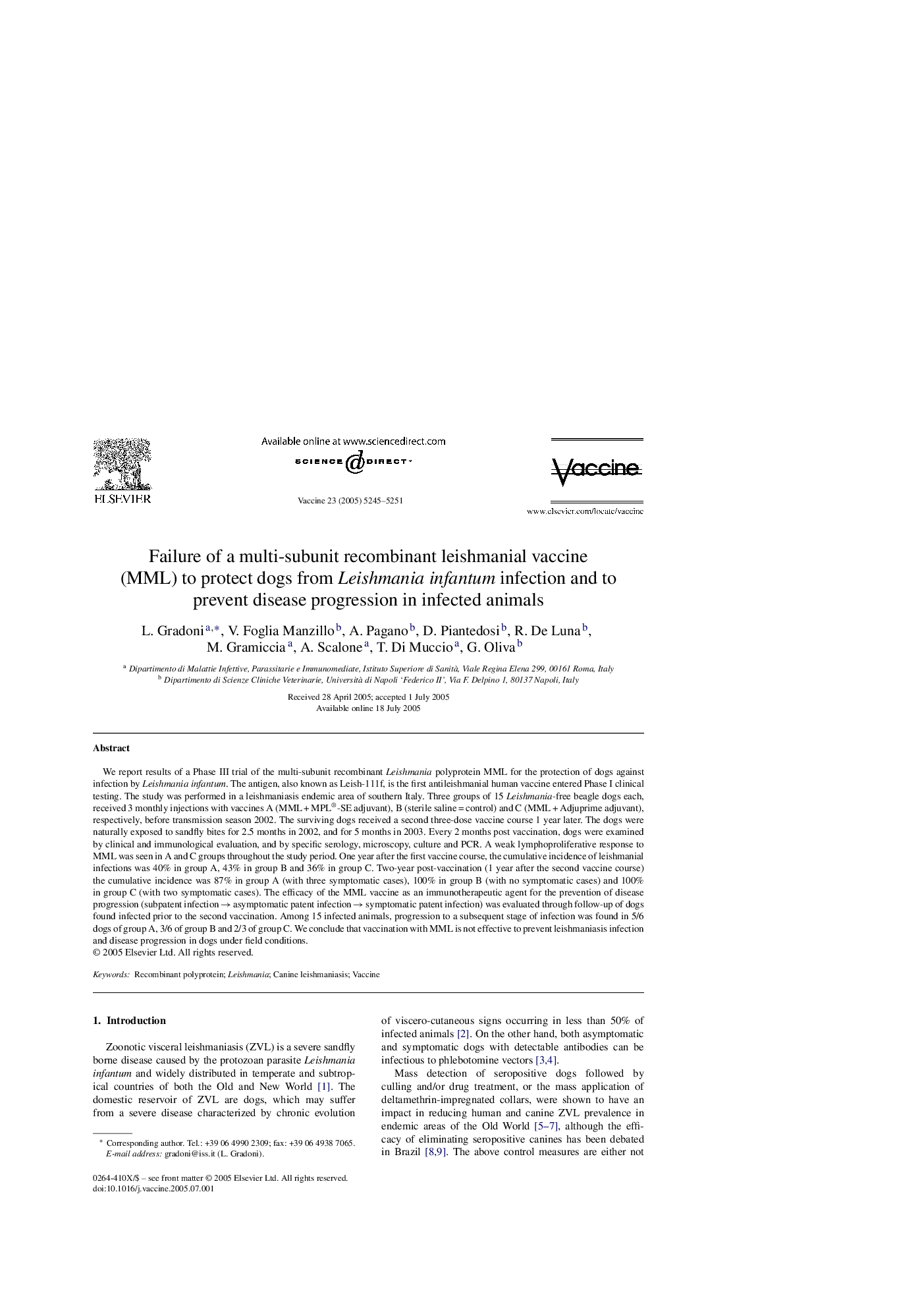| کد مقاله | کد نشریه | سال انتشار | مقاله انگلیسی | نسخه تمام متن |
|---|---|---|---|---|
| 2408094 | 1103156 | 2005 | 7 صفحه PDF | دانلود رایگان |

We report results of a Phase III trial of the multi-subunit recombinant Leishmania polyprotein MML for the protection of dogs against infection by Leishmania infantum. The antigen, also known as Leish-111f, is the first antileishmanial human vaccine entered Phase I clinical testing. The study was performed in a leishmaniasis endemic area of southern Italy. Three groups of 15 Leishmania-free beagle dogs each, received 3 monthly injections with vaccines A (MML + MPL®-SE adjuvant), B (sterile saline = control) and C (MML + Adjuprime adjuvant), respectively, before transmission season 2002. The surviving dogs received a second three-dose vaccine course 1 year later. The dogs were naturally exposed to sandfly bites for 2.5 months in 2002, and for 5 months in 2003. Every 2 months post vaccination, dogs were examined by clinical and immunological evaluation, and by specific serology, microscopy, culture and PCR. A weak lymphoproliferative response to MML was seen in A and C groups throughout the study period. One year after the first vaccine course, the cumulative incidence of leishmanial infections was 40% in group A, 43% in group B and 36% in group C. Two-year post-vaccination (1 year after the second vaccine course) the cumulative incidence was 87% in group A (with three symptomatic cases), 100% in group B (with no symptomatic cases) and 100% in group C (with two symptomatic cases). The efficacy of the MML vaccine as an immunotherapeutic agent for the prevention of disease progression (subpatent infection → asymptomatic patent infection → symptomatic patent infection) was evaluated through follow-up of dogs found infected prior to the second vaccination. Among 15 infected animals, progression to a subsequent stage of infection was found in 5/6 dogs of group A, 3/6 of group B and 2/3 of group C. We conclude that vaccination with MML is not effective to prevent leishmaniasis infection and disease progression in dogs under field conditions.
Journal: Vaccine - Volume 23, Issue 45, 1 November 2005, Pages 5245–5251